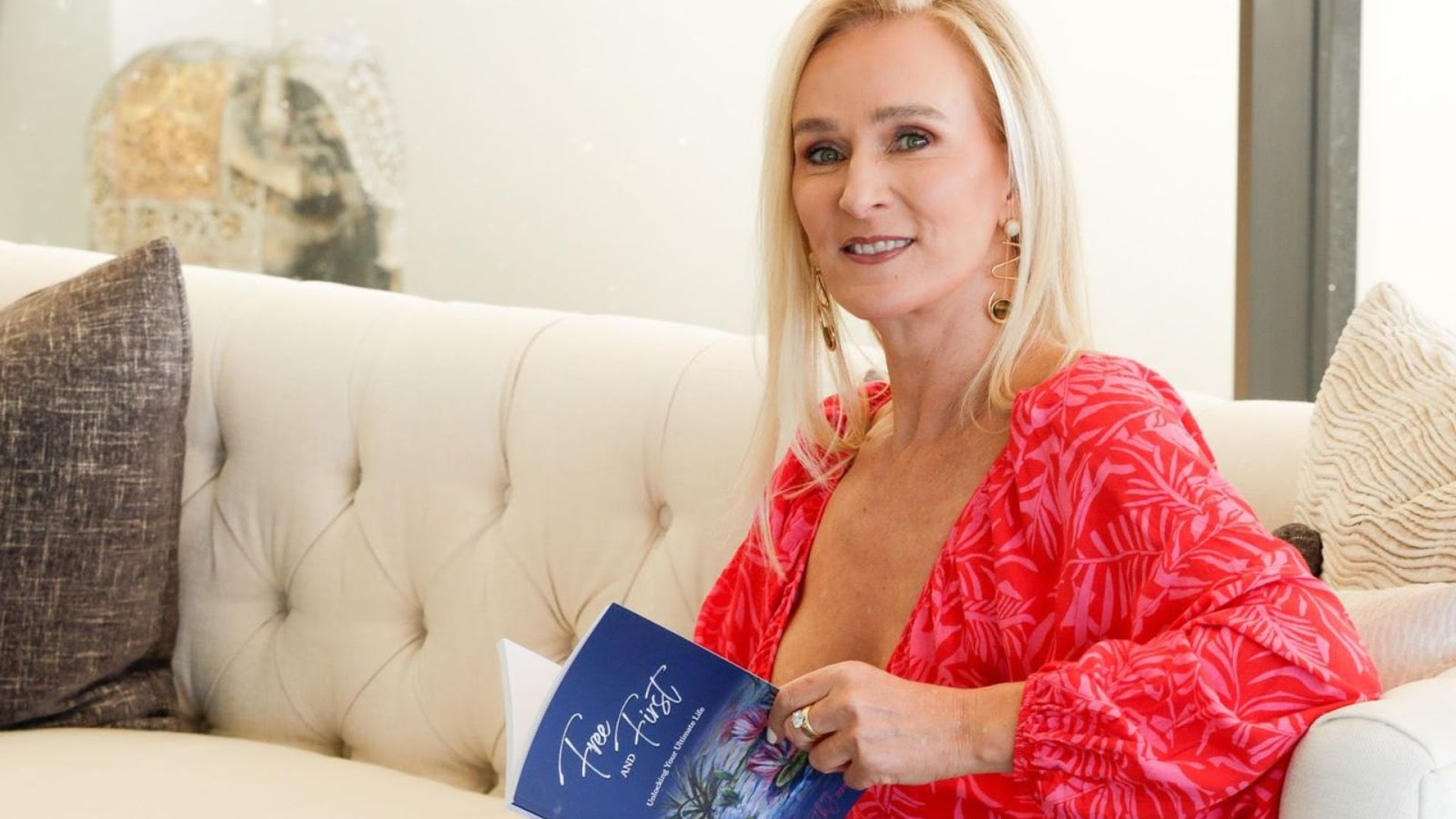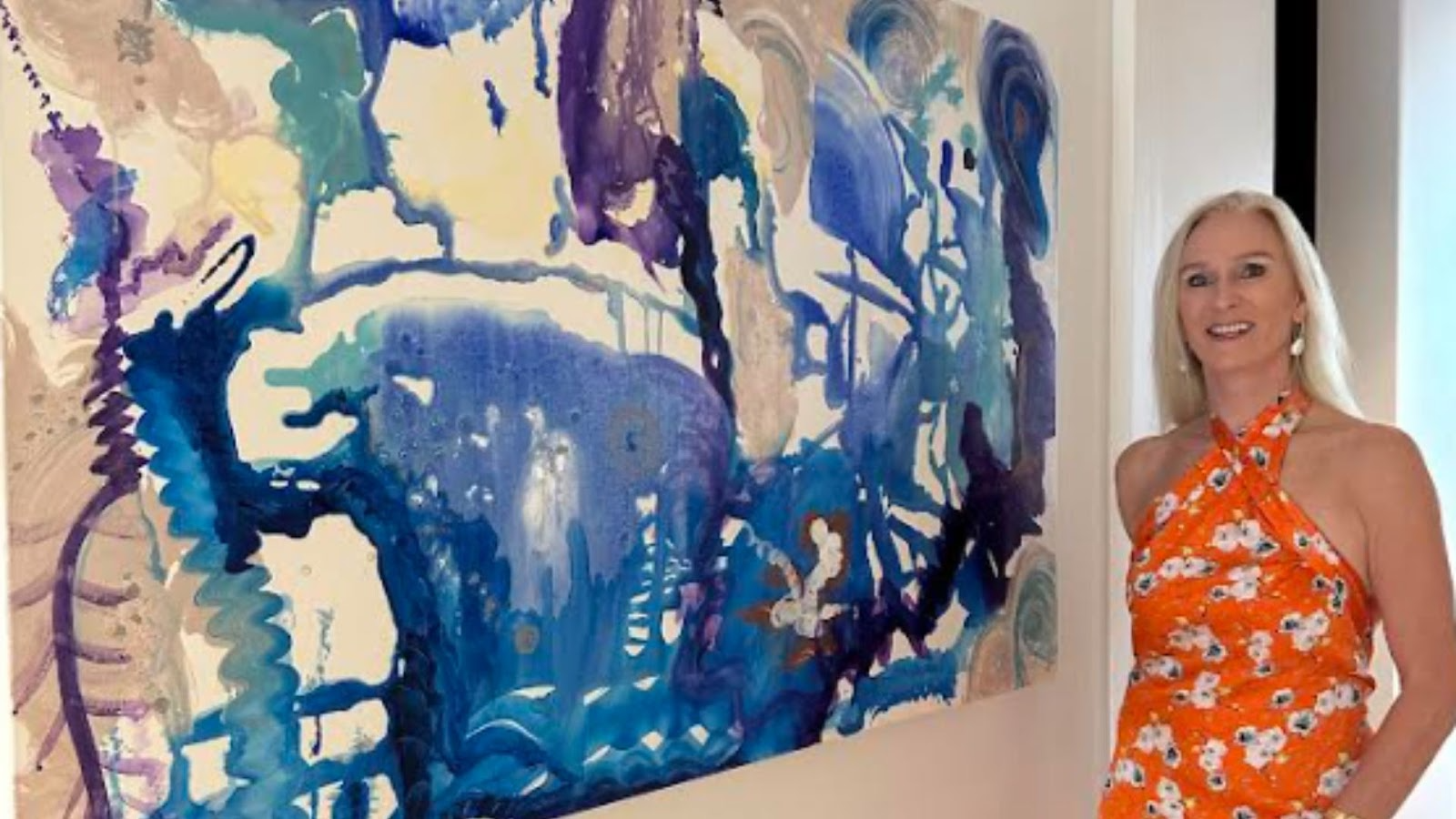Lifestyle
How Elizabeth Jane rebuilt her life after being blindsided by divorce at 50

After being blindsided by divorced and feeling like her life was over, Elizabeth Jane, 60, now believes that life’s obstacles are just an opportunity for personal growth.
As told to Elli Jacobs
My husband asked for a divorce in 2017. It was completely unexpected, with no real explanation at first. I was completely blindsided.
Before that, life seemed idyllic: four healthy children, the white picket fence, and opportunities to travel the world. The children thrived, and our family life felt secure.
I lived by my parents’ saying: ‘Couples that play together stay together.’ And we did. My husband and I sailed yachts, I learned to race alongside him, and we often journeyed together as a family. As a primary school teacher, I was deeply involved in my children’s lives, creating a household that was lively, busy, and full.
At first, I was in denial, hoping it was temporary, even attributing it to something like male menopause. Despite nearly 28 years of marriage, my husband during mediation simply said he had “fallen out of love.” I had imagined us growing old together, but that dream collapsed. The foundation I had built my life upon shattered.
The moment it all became real
When reality sank in, I was swept into a storm of grief, anger, and loneliness that lasted nearly five years. But beneath the turmoil, I realised something deeper: I had lost myself long before. My identity had been bound to roles - daughter, wife, mother, teacher and I had spent much of my life seeking approval, first from my parents as the eldest child, then from teachers, partners, and eventually from my husband and children.
Consequently, learning to navigate life on my own and stepping into the role of leading myself felt daunting - managing finances, deciding how to spend my time, and simply learning how to navigate life alone.
Loneliness pressed in, sharp and unrelenting even more when many mutual friends quietly slipped away, leaving an even deeper emptiness. That was when I realised how my entire social circle had been built around my ex-husband’s sailing community. I had no close-knit circle of my own.
On top of everything, uncertainty about the future loomed large. When my youngest twins turned 18, the reality hit even harder: I suddenly had four adult children and no partner. I felt discarded - like a toy no one wanted anymore.
I started taking my healing seriously
To begin lifting myself up, I realised I had to build my sense of worth and that required I discover what truly brought me joy. Out of that awareness, a new purpose began to take shape.
I started journaling what helped me heal and what held me back. Those notes grew into the foundation of my book, Free and First: Unlocking Your Ultimate Life, an organic collection of tools and practices to help women rebuild after divorce or trauma.
I realised that the should’ve, could’ve, and would’ve - along with the shame and blame, don’t assist in healing. They only keep us circling in the past.
What actually helped me move on
What truly shifted things for me was understanding that while it was vital to feel my emotions, I also had to move through them. I subsequently developed a simple but powerful tool I call “The A-B-C of Me.”
A stands for acknowledge, allow, and accept – it is the moment we stop, pause, and sit with our feelings instead of running from them; B stands for boundaries - the essential limits that protect our wellbeing and help us feel safe again. When anger shows up, for example, it may be guiding us to have that empowered conversation where we say clearly: this behaviour can’t continue; and C is for communication - honest, respectful communication with ourselves and others clears the air and prevents emotions from festering.
Through practicing this tool daily, I began to feel freer, lighter, and more connected to myself and others. I allowed the heavy emotions - mostly sadness and unworthiness to move through me, no longer weighing me down or dimming my light.
Additionally, alongside writing and journaling, painting, yoga, writing poetry and honest conversations with counsellors and friends, created a path for those heavy emotions to further keep moving, rather than staying stuck inside me.

Healing doesn’t happen overnight
Healing was not an overnight wonder - it took about five years. I had to learn to reward myself along the way, I liken to climbing Mount Everest. You don’t just celebrate at the summit; you stop to admire the view one-third of the way up, halfway up, three-quarters of the way up. Healing is the same. You celebrate the journey, even when you take a step back and slip into old patterns of blaming, shaming, or numbing.
I drank too much at times to numb the pain, only to wake with regret. That’s a common human response - the reality of loss and shock can feel unbearable. But over time, I learned to be kind and patient with myself, to nurture myself instead of punishing myself. In the early days, just getting out of bed was an achievement. I kept a list of little joys to reach for: a silly song on the radio, skipping down the street, something spontaneous to make me laugh. Small joys helped me survive the heaviness.
Filling my cup and embracing friendship
Rebuilding my support network was one of the first steps in healing. I found new friends through my children, at yoga class, on the tennis court, in poetry circles, and within creative communities. What began as hobbies became lifelines - places where I could connect, laugh, and rediscover myself.
I’ve always been a romantic, someone who deeply believes in love. That hasn’t changed, but my understanding of it has. By learning to honour myself, I’ve discovered that love requires vulnerability, and that vulnerability begins with self-respect. If I don’t value myself, I invite disrespect. If I don’t speak up when something hurts, I attract people who cross boundaries. Real love begins within. Self-love radiates outward, shaping the quality of every connection we create.
Leaning to put myself first
This shift felt radical to me, because for years I believed putting myself first was selfish. I had children to raise and elderly parents to care for - how could I possibly prioritise myself? But I came to understand that filling my own cup was not selfish; it was essential. Just like the stewardess reminds us on a plane: put your mask on first before helping others. When I took care of my energy, my family and friends benefited. They could feel the difference. Exhaustion made me sharp and stressed, but when I was grounded and joyful, I radiated calm.
And yes, I am open to love again. This time, I will welcome it differently. I will be more vulnerable, more honest about my feelings, and more courageous in expressing what I need. I want a partner who does the same, because true intimacy requires empowered communication. The sticky conversations, the brave truths, those are the soil where love can thrive.
It’s never too late to begin again
Now, as I turn 60, I see clearly: it’s never too late to begin again. You’re never too old to dream new dreams or to choose differently. Life is a series of choices, and no one can take that from you. We may have sixty thousand thoughts a day, but each one offers the chance to say yes to what uplifts us and no to what doesn’t. That is an act of healing.
The obstacle I once thought would break me – divorce, became my greatest teacher. It taught me that the only way to create a better world is to begin with ourselves, healing step by step, one choice at a time. For too long, I put everyone else first, which kept me trapped in the shadows of unworthiness. But when I finally spoke my truth and honoured my needs, I began to attract respect instead of disrespect.
Looking back on my old self with acceptance
If my 2017 self could see me now, she’d be astonished. I would tell her: You don’t have to follow the crowd. You don’t need everyone’s approval. If you don’t look after yourself, no one else will truly respect you either. Be brave enough to be you.

Starting over at sixty doesn’t feel like beginning again at all - it feels like uncovering more of myself. This is less about reinvention and more about revelation: finally allowing myself to be who I always was.
Looking back, I even feel gratitude for my husband. If we had stayed together, I might never have grown in this way. His leaving pushed me to reclaim my creativity, my writing, my art, and my voice. It was painful, but it became the catalyst for transformation.
If I could sum it all up in one phrase, it would be this: the power of authenticity. When we follow what we truly feel, speak openly about what we need, and dare to live as ourselves, we free ourselves. For so long, I kept quiet out of fear of upsetting someone, losing a job, alienating my children, or being left by my husband. But now I know: freedom comes from courage. The courage to be me and to do me well.
One of my poems
Follow Your Fun
Feel your feelings, work out your needs,
voice your concerns, do good deeds.
It’s always best to speak up when things aren’t right,
don’t hold things within—let your feelings take flight.
Choose what you love to do,
say yes to what works for you.
It doesn’t matter if what you choose is not everyone’s taste,
as long as it brings you joy and is love-based.
Do you, and do you well.
Let fun be your focus—come out of your shell.
Each day, make time to play and do things your way.
As you lift up in joy, the love from your heart
will all negativity destroy.
It’s up to you—but if you follow your fun,
your life will fill with more sun.
You will know your life has really begun.
Blaze your light. Don’t hold back.
Focus on fun and you’ll keep on track.
People will drift in, and others will drift out,
but one thing’s for sure—more happiness will sprout.
Keep your chin high, carry on with you.
Your life is your own—feel what’s best to do.
When things get tough, remember to put yourself first.
Focus on what’s best, not on what’s worst.
As you lift up, you’ll find your life takes a turn
of the better kind.
Feature image: courtesy of Elizabeth Jane
Articles we think you’ll love:
